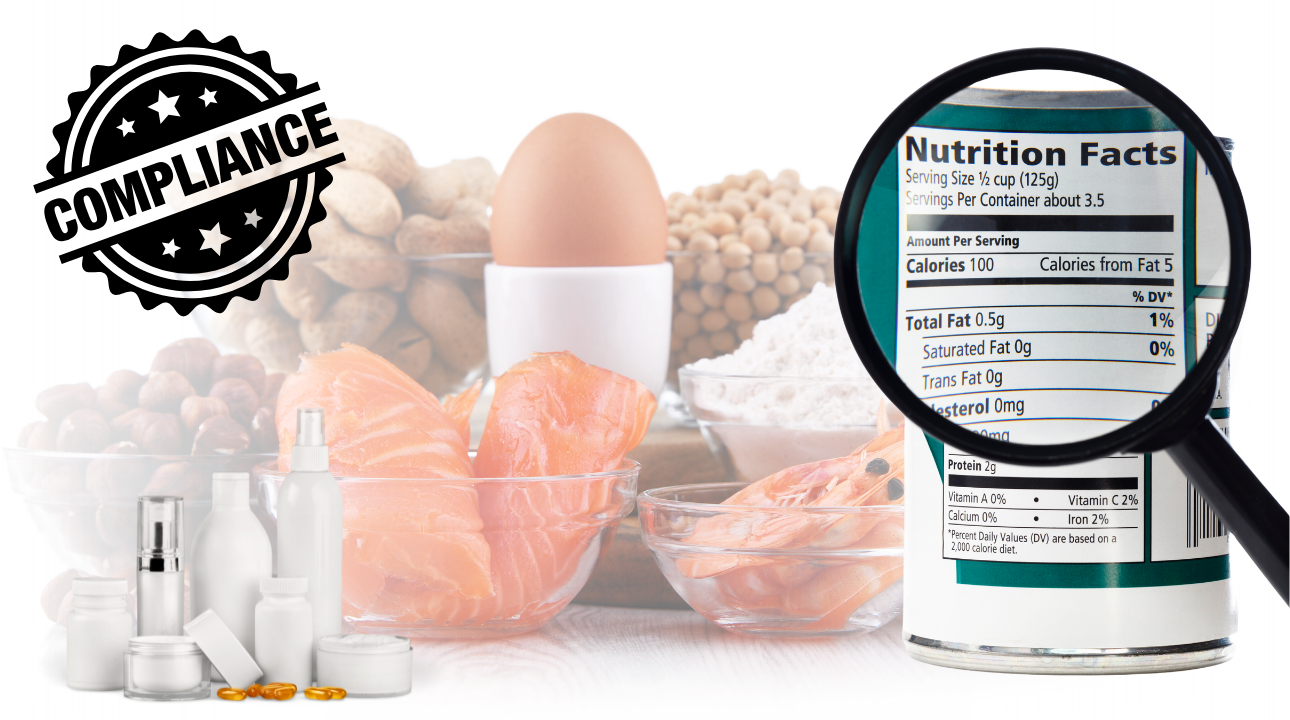Written by
Rutika Nikam

In an era of heightened consumer awareness and global regulatory scrutiny, label compliance is no longer a back-office task—it’s a frontline business imperative. Whether you're marketing a protein bar or a botanical face serum, your product label is a legal document, a trust signal, and a competitive differentiator.
1. Legal Protection & Regulatory Adherence
Labeling is governed by stringent laws such as:
Failure to comply can result in:
Example: A mislabeled allergen in a snack bar can trigger a recall and legal liability under the Food Allergen Labeling and Consumer Protection Act (FALCPA).
2. Consumer Safety & Transparency
Labels are the first line of defense for consumer health. They inform users about:
In cosmetics, incorrect labeling of preservatives or fragrance allergens can lead to skin reactions or regulatory action. In food, undeclared allergens can be life-threatening.
3. Market Access & Global Trade
Each country has its own labeling standards. Compliant labels ensure smooth entry into international markets:
Without proper labeling, products may be detained at customs or rejected by retailers.
4. Brand Trust & Consumer Loyalty
Today’s consumers read labels. They look for:
Transparent, compliant labeling builds credibility and loyalty. Misleading claims, on the other hand, can lead to backlash and loss of trust.
5. Competitive Advantage
Label compliance isn’t just about avoiding penalties—it’s about standing out. A well-labeled product:
In a crowded market, clarity and compliance can be the difference between shelf success and obscurity.
6. Future-Proofing Against Regulatory Changes
Regulations evolve. For example:
Brands that prioritize compliance are better positioned to adapt quickly and avoid costly redesigns.
Conclusion
Label compliance is not just a regulatory checkbox—it’s a strategic asset. It protects consumers, empowers brands, and unlocks markets. In food and cosmetics, where trust and safety are paramount, your label is your promise. Make it count.
🛡️ Partnering for Compliance Excellence: QRServes Global LLC
For businesses navigating the complexities of label compliance, QRServes Global LLC offers expert guidance, regulatory intelligence, and end-to-end support. From label audits to global standard alignment, QRServes helps brands stay compliant, competitive, and consumer-ready.
Your label speaks before your product does—let QRServes ensure it says the right thing.
Saturday - Thursday :
8:30 am - 10:45 pmMonday - Saturday :
8:00 am - 4:00 pm